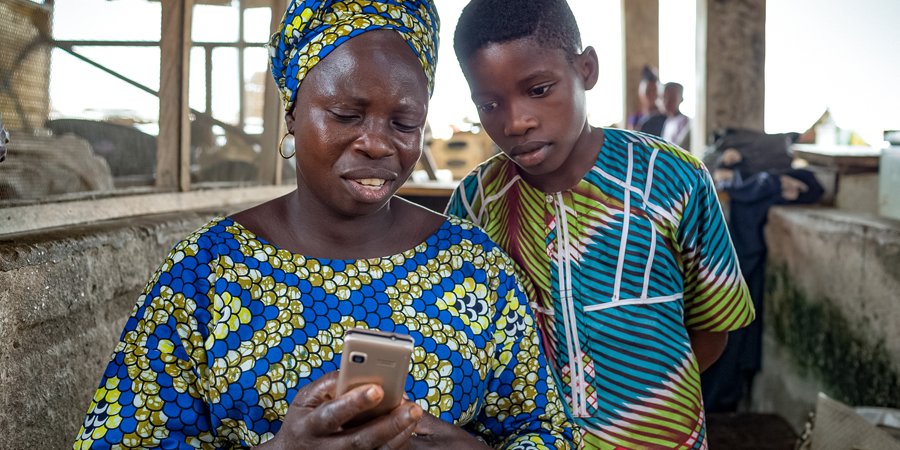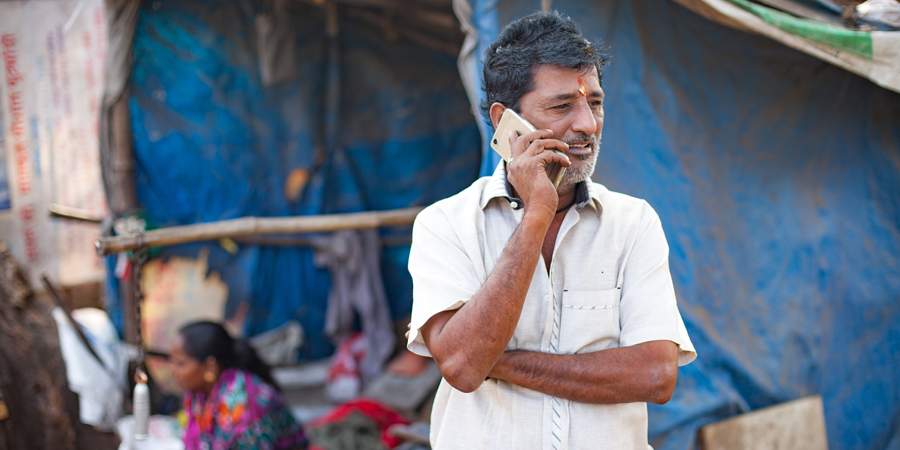The wide scale social and economic challenges of the COVID-19 pandemic are providing stronger incentives for people, business and governments to more actively pursue digital solutions. As people face lockdown and social distancing measures, the internet is a vital tool for accessing critical information and services but using these resources requires that people have the necessary skills and knowledge to safely access and use them – for instance, to know how to get online and use the services they need as well as to navigate some of the risks that are also present in an online world such as misinformation and harassment.
Acquiring the skills to go online and unlock the benefits of the internet is a challenge for many people however, and remains a key barrier for the 3.3 billion people who are covered by mobile broadband networks but who are not using mobile internet services. GSMA Connected Society recognises the vital need to help and empower people through digital skills at this time and, as part of our efforts, we are supporting industry initiatives by:
- Enhancing the GSMA Mobile Internet Skills Training Toolkit (MISTT), to support safe access training materials with a range of new modules available remotely.
- Launching a GSMA Innovation Fund to encourage the development of innovative solutions for mobile internet adoption and digital inclusion, including overcoming digital skills barriers. The fund will focus on countries in Asia and Sub-Saharan Africa with grants of up to £250,000 (application closing date 22 May 2020).
Below, in the second of our blogs addressing the barriers to internet use during COVID-19, we delve deeper into the key issues relating to digital skills and provide more information on the two initiatives.
Lack of digital skills is a barrier to internet use
In low- and middle-income countries a lack of literacy and digital skills is the biggest perceived barrier to adoption among mobile users who are aware of mobile internet. The GSMA Intelligence Survey conducted in 2019 found that 34 percent of mobile users who are aware of the internet in Africa and 33 percent in South Asia identified digital skills as the single most important barrier to internet use. Lack of knowledge about how to access the internet and a lack of time to learn both emerged as key barriers in countries ranging from Mozambique to Myanmar. Women often experience these barriers more acutely, as do the elderly and those lacking basic education. The Mobile Gender Gap 2020 report highlights that in Nigeria, for example, 27 percent of women and 22 percent of men who were aware of, but do not use the internet, cited a lack of digital skills as the most important barrier.
To deliver successful digital skills initiatives, it is important to keep in mind the actual needs of the different types of users, which can depend on their position on the digital learning curve, as well as on social, cultural and occupational differences. Furthermore, the development of digital skills training will need to be forward-looking too, providing the tools for individuals to go beyond everyday internet activity to enabling participation in an increasingly digital workplace. This could involve, for example, empowering entrepreneurs with the skills to conduct their business online.
People often learn digital skills either by themselves, through family, friends and school, or via business channels such as telecoms operator sales agents or handset retailers. As the lockdowns persist, people will increasingly depend on themselves or those around them to become more familiar with internet use. As a response to the changing environment, some providers have started to run advertisement campaigns in national and local media to teach digital skills, such as Whatsapp’s campaign in India on how to spot fake news[1], and BT in the UK on how to make a video call[2].
Enhancing the GSMA Mobile Internet Skills Training Toolkit (MISTT)
To help people improve their digital literacy, use the internet more safely on their mobile and ensure they have the skills required for a digital future, the GSMA Connected Society programme developed the Mobile Internet Skills Training Toolkit (MISTT). The MISTT uses a ‘train the trainer’ approach which consists of short lessons that can be easily adapted to local needs and languages (a number of MISTT modules have already been translated into French, Hindi, Swahili, Bengali and Kinyarwanda). The MISTT modules are available in video format to enable users to learn remotely, an especially useful feature at the moment in light of the restrictions on social interaction due to COVID-19. It has also been integrated into the Life App, a self-care basic digital content application developed by KaiOS Technologies for KaiOS enabled phones to equip first-time internet users with tools and resources in digital skills, health, education, gender equality, agriculture, finances and more.
The MISTT consists of an introductory module that covers the basics of the internet, including internet safety and costs, as well as modules on Facebook, Google, WhatsApp, Wikipedia and YouTube. The toolkit will be enhanced in 2020 with new modules on digital financial literacy; how to set-up and use Android and KaiOS; and how to use the internet for people with hearing and visual impairment. It will also include training on online safety and child protection. These modules will be critical to help users safely navigate the internet and identify misinformation; raise awareness of the risks that children could face online; and support financial inclusion.
The MISTT has already been deployed in 21 countries and impacted over one million people. In Bangladesh, for example, Banglalink trained over 100,000 customers in three months, which increased both the number of customers who then started to use mobile internet but also the level of usage (with those who received the training increasing their data usage by 228%, compared to an increase of only 59% for those who did not receive the training).
Telecoms operators are improving digital skills
Mobile operators are undertaking a range of initiatives focused on increasing digital skills and are integrating digital skills training across many of their activities. This includes making a focus on digital skills a central component of their overall strategy; delivering digital skills training through their agent networks, apps and customer outreach efforts; partnering with others on initiatives to increase digital skills; and supporting national, regional and global efforts.
The GSMA Innovation Fund will support mobile internet adoption and digital inclusion
To support innovative solutions that tackle the digital skills barrier to mobile internet adoption and use for those not currently online, the GSMA has just launched the Innovation Fund for Mobile Internet Adoption and Digital Inclusion.
Projects that can apply for funding should focus on innovations that overcome a number of the barriers to mobile internet adoption including Accessibility, Affordability, Digital Skills, and Safety and Security, and will look to demonstrate commercially sustainable models that can be scaled and replicated across similar environments. The deadline for submitting project applications is 22 May 2020 and all details can be found here.
Digital Skills are needed now more than ever
With many communities, business and governments coping with lockdowns and social distancing, COVID-19 is accelerating the adoption and use of the internet. It is increasingly critical that people have the skills they need to access and safely use the internet and the important internet-enabled tools, resources and services that are supporting people during this time of crisis. Operators have been driving efforts to increase digital skills, and the GSMA is supporting these efforts with a new Innovation Fund and MISTT modules available through remote delivery, ensuring the building of digital skills can continue during lockdowns. By working together, we can ensure that more people have the necessary skills to help mitigate the impacts of COVID-19.




